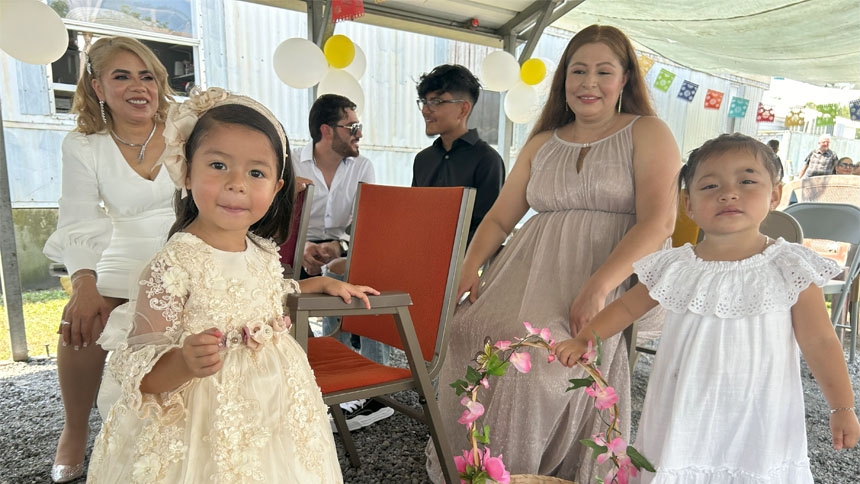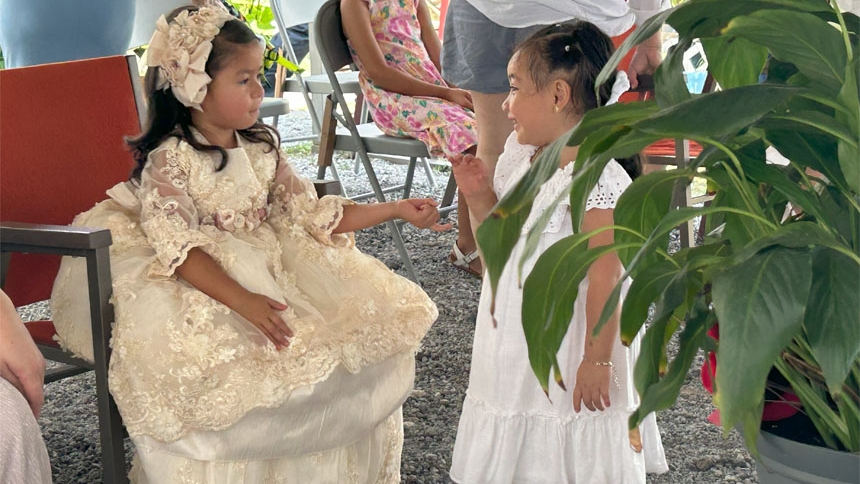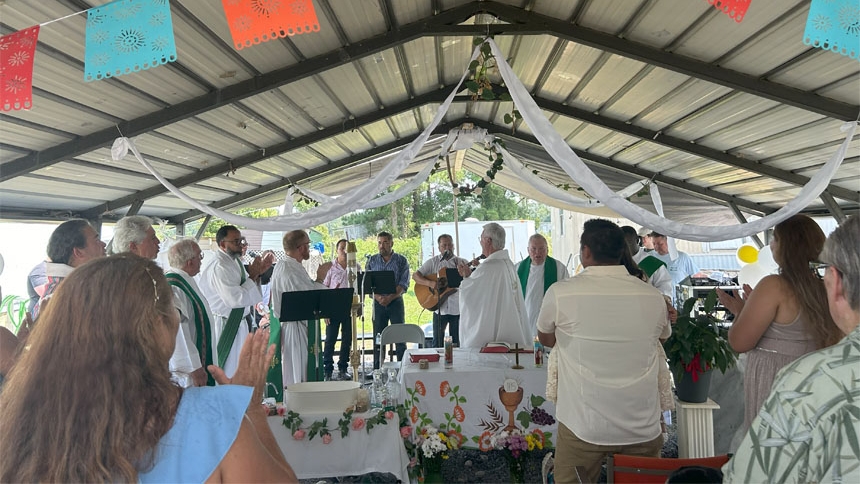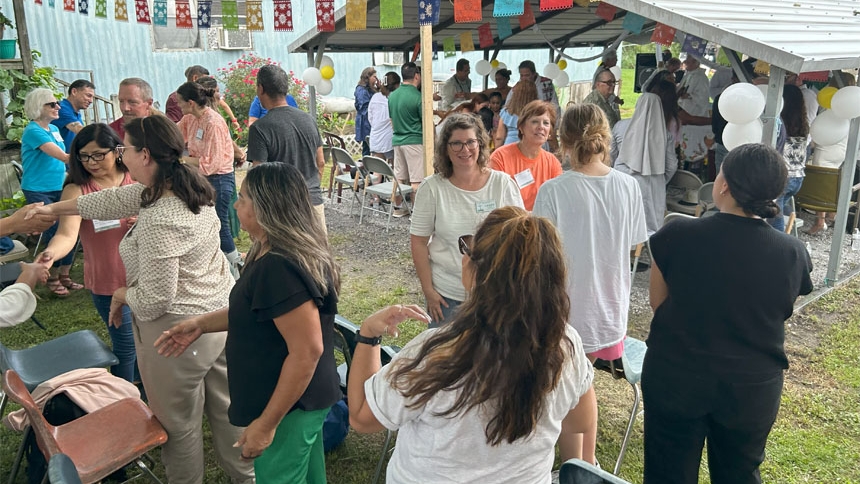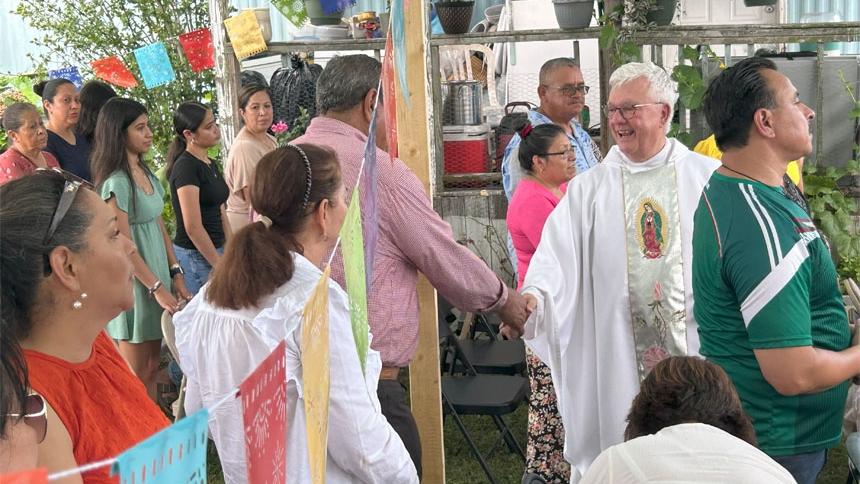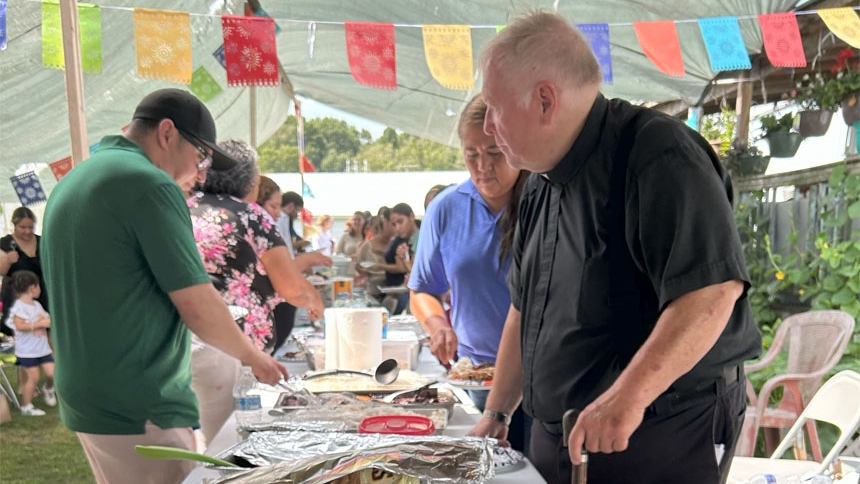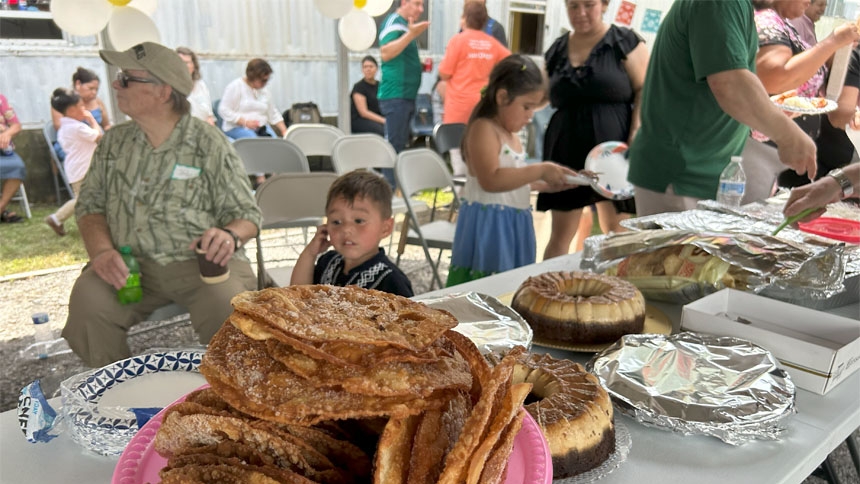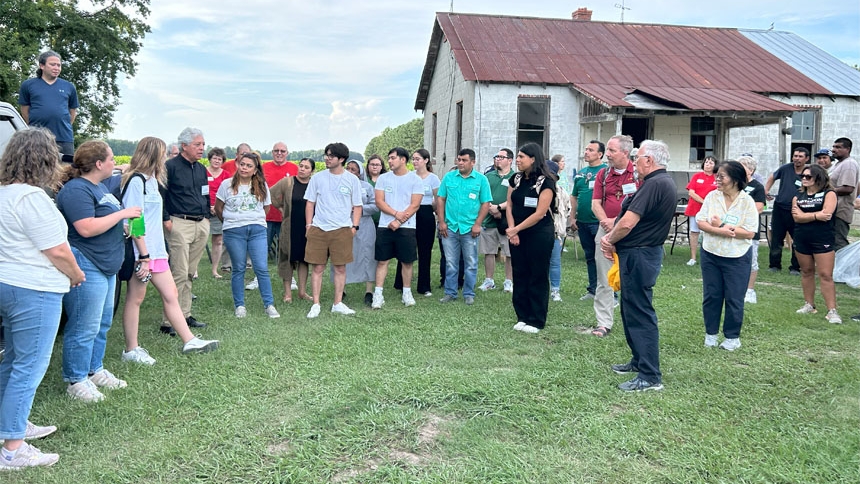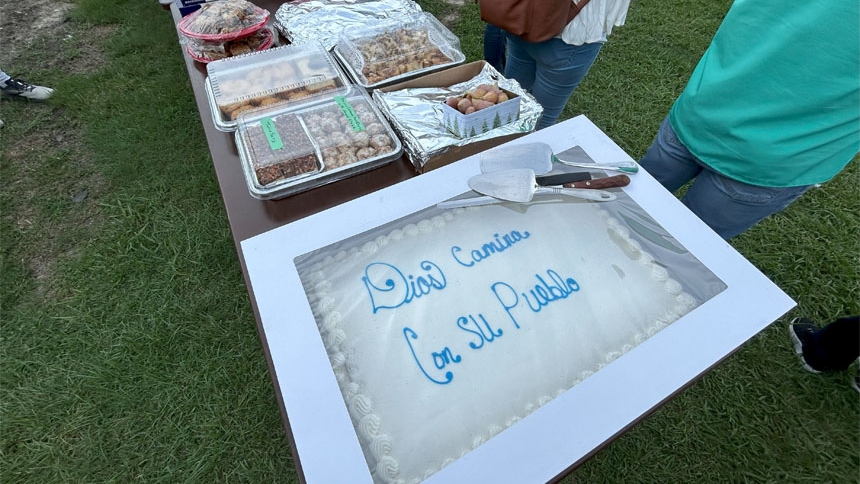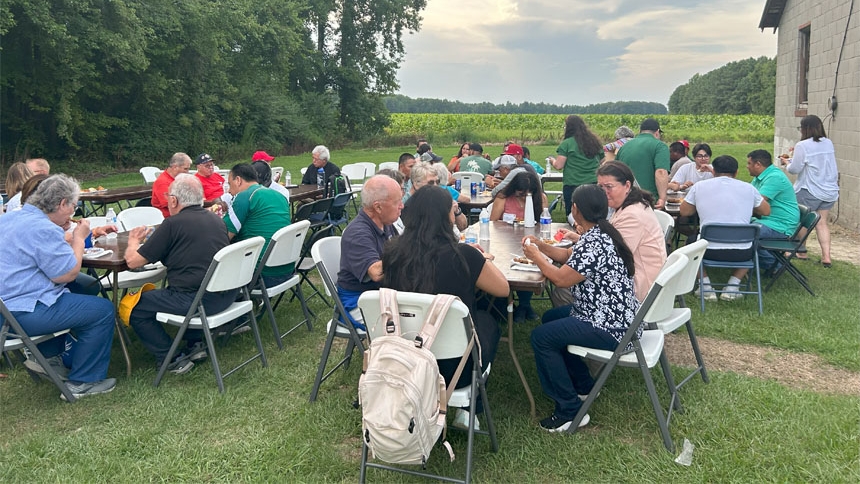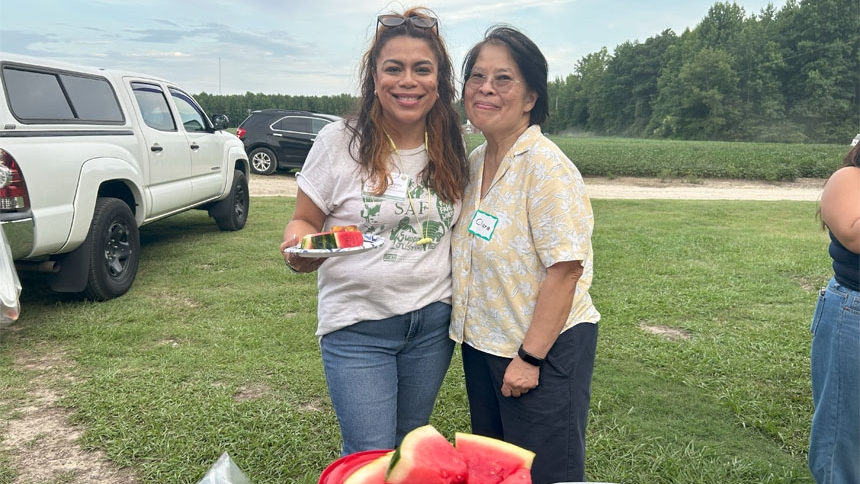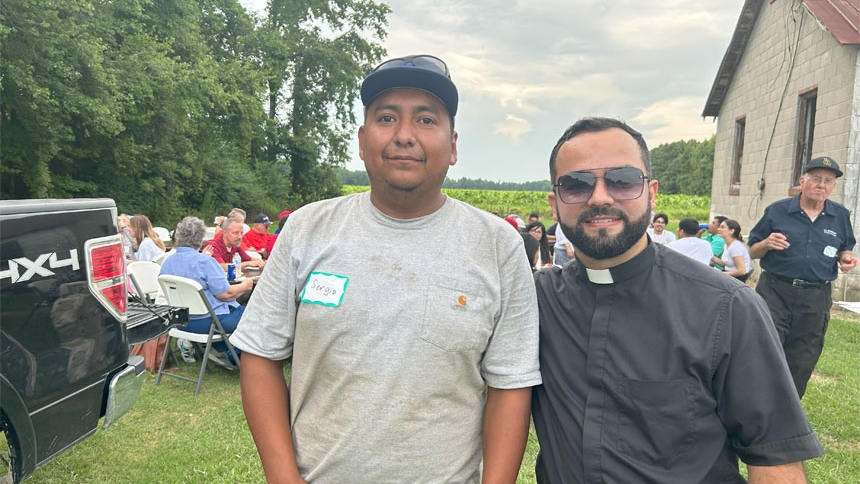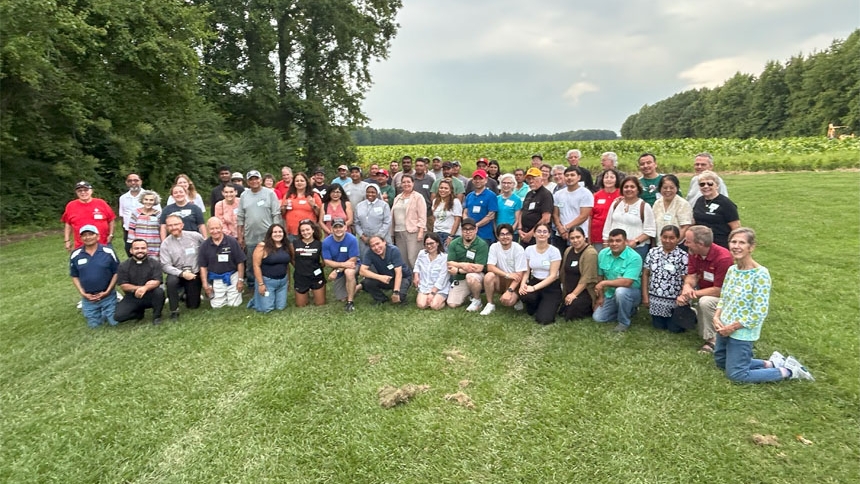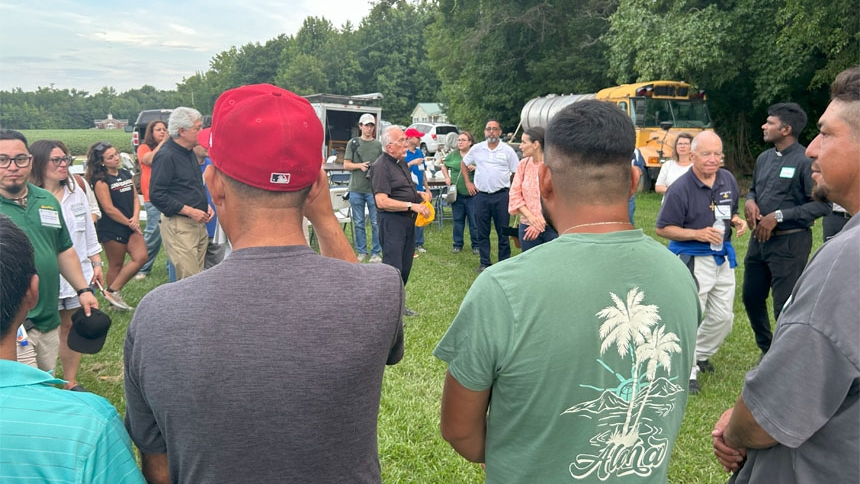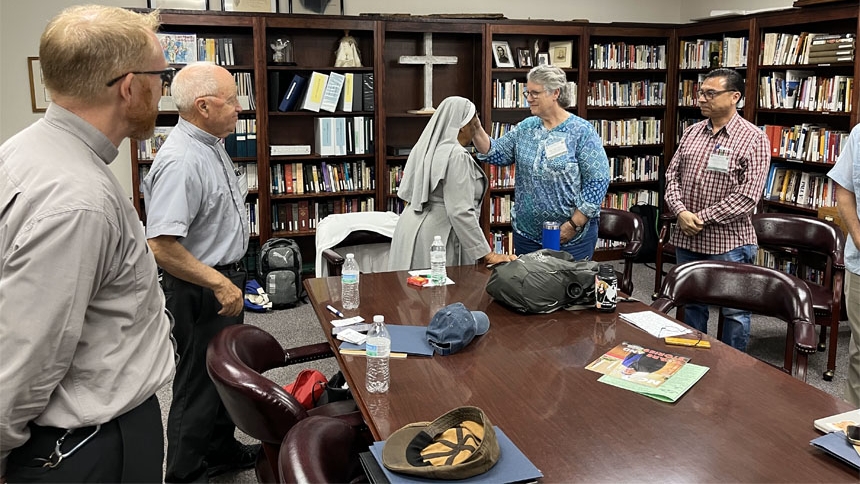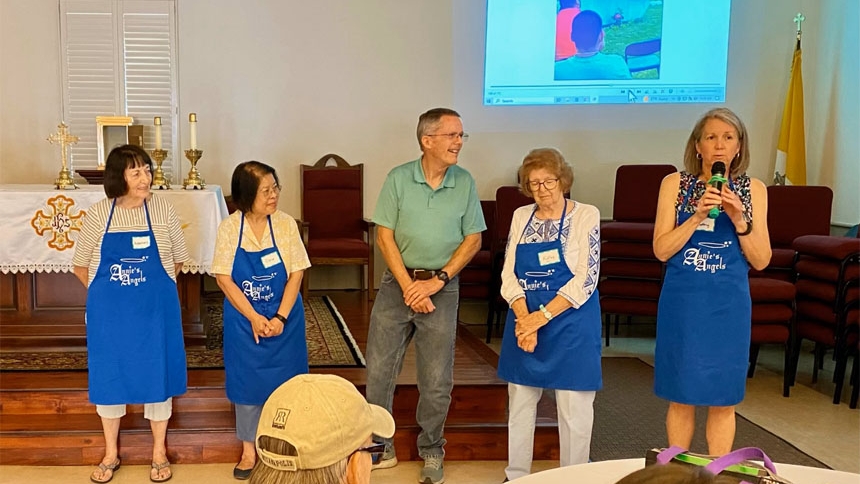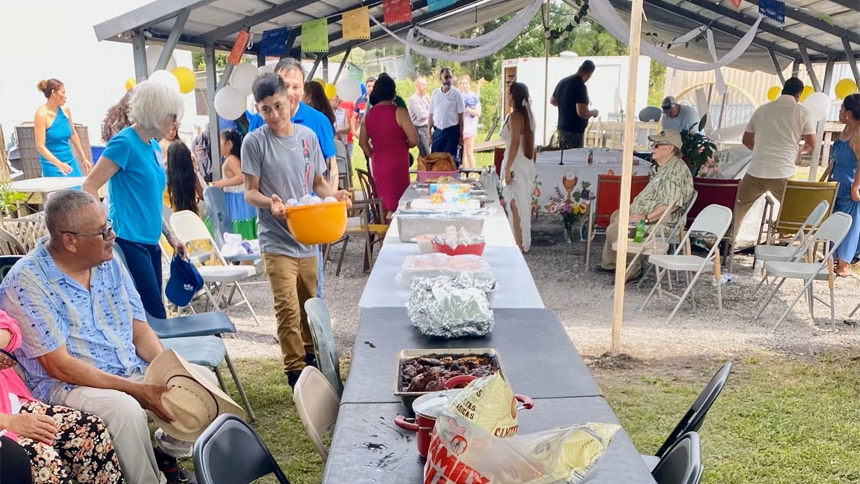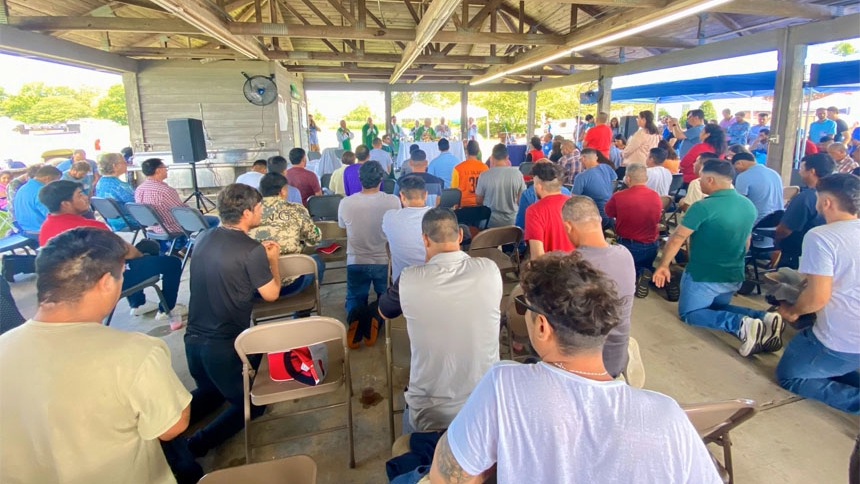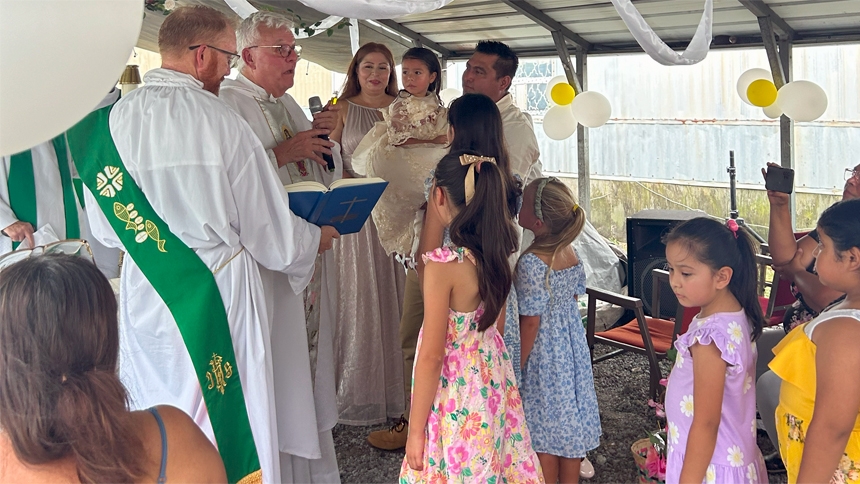
Water bottles sat underneath folding chairs. Hidden from general view, a black suitcase was open enough to spot extra vestments for clergy. A table sat between two mobile homes. Its tablecloth, with the image of a chalice, made its purpose clear; it was an altar.
Above a congregation, a tarp helped shield people from a powerful August sun but let in the sounds of seagulls. About 100 yards away, a charter bus was parked.
If anyone was looking for signs, they were there. The Church went to the people.
And the people responded. Three-year old Gemma Lizeth Garcia Estrelle was baptized and offered friends and guests bracelets to remember the day. The faithful received the sacrament of reconciliation. They passed around a microphone before Mass and announced where they were from. Each spoken location, from Minnesota and California to Puerto Rico and Mexico, was met with applause.
It was Friday, Aug. 2 and a delegation from the U.S. Conference of Catholic Bishops, Diocese of Raleigh, Catholic Migrant Farmworkers Network and others gathered at Mattamuskeet Seafood. The visit to the crab processing center, located in Swan Quarter, North Carolina, was part of a five-day pastoral visit with migrant farm workers.
Visiting team members arrived in North Carolina the day before and celebrated Mass at the Catholic Center, which is the main office of the Diocese of Raleigh. They also had dinner and shared their intentions and hopes for the encounter.
Leaders such as CMFN’s Father Tom Florek, S.J., Madeline Watkins, a USCCB program coordinator and Sister Joanna Okereke, H.H.C.J., assistant director for the USCCB’s Subcommittee on Pastoral Care of Migrants, Refugees and Travelers joined journalists from Catholic media. All and all, it was a group big enough to necessitate that charter bus.
At Mattamuskeet, the community shared a homemade lunch with visitors. The food, Maria Dolores Cerino said, was made with love and planned weeks ahead.
Cerino and her daughter, Mishel Castillo, are originally from Mexico and work at Mattamuskeet Seafood, which specializes in crabmeat and oysters.
“We own a company that brings people with a visa. Most of the people are here temporarily, like April to December. They come here to work. It’s a small community, and we try to support each other,” said Castillo.
Before arriving at Mattamuskeet, the group visited St. Ann Church in Edenton, North Carolina to meet parish staff and volunteers who work directly with the migrant community.
“Our St. Vincent de Paul Society … welcomed the delegation. The idea was to share with them our experience in serving here … it was supposed to be a conversation, an honest conversation, about the strengths and the struggles of this type of ministry which is so important in the life of the Church as we care,” said Father Jairo Maldonado-Pacheco, pastor of St. Ann and dean of the Albemarle Deanery.
Father Jairo said the Church can serve migrant farm workers by making sure people know they are here and have spiritual needs, as well as practical ones. He hopes the workers will feel that, although they are far from home, they have “a family here also.”
St. Ann’s parish ministry visits the workcamp at Morris Farms in Colerain, North Carolina, each month from April through September, he said.
“The work we are doing here is the work of Jesus Christ, who asked us to go and serve and care for one another,” he said.
As part of the visit, delegates also joined the society’s August visit to the farm, which included dinner, homemade and served by St. Ann parishioners.
“We come here once a month to provide whatever we can … toiletries, gift cards, but I think, more importantly, a meal together … fellowship and to know that the Church cares,” said parishioner Rosemary Smith.
Those gathered took a group photo, and the farm workers received a blessing. The fields, which produce tobacco, soybeans and cantaloupe, were also blessed.
By Saturday, Aug. 3 the delegation was back at the Catholic Center to meet diocesan pastoral staff who work directly with migrants. A panel discussed history, best practices, approaches and strategies.
Celina Marquez, J.D., a USCCB policy advisor, presented on policy, worker rights and helpful resources. Later, Deacon Joshua Klickman, of the Diocese of Raleigh, and Mike Munster facilitated a conversation between the delegation and a small group of North Carolina farm workers. Bishop Luis Rafael Zarama offered remarks, and conversations continued with a round-robin about the site visits and also a presentation by Father Tom about current realities of migrant farm workers in the United States.
Bishop Luis and the delegation traveled to Newton Grove’s Our Lady of Guadalupe Church for Mass, lunch and a day of celebration Aug. 4.
“We have … places we visit,” said Sister Joanna. “North Carolina was one of the very first we went to many years ago. As we were surveying to check where to go, we learned that the diocese was doing [XIII] Encuentro. We said this will be a wonderful opportunity … my heart is filled with joy. I feel we have accomplished why we came here.”


